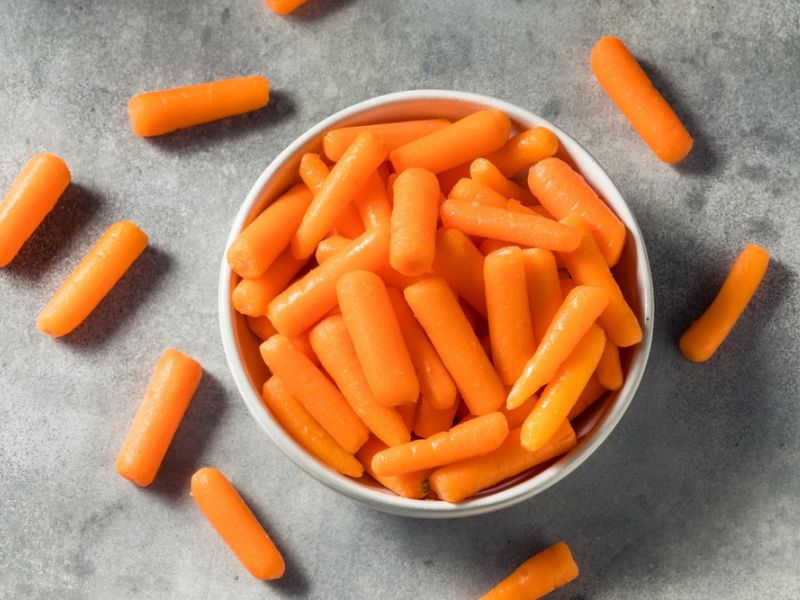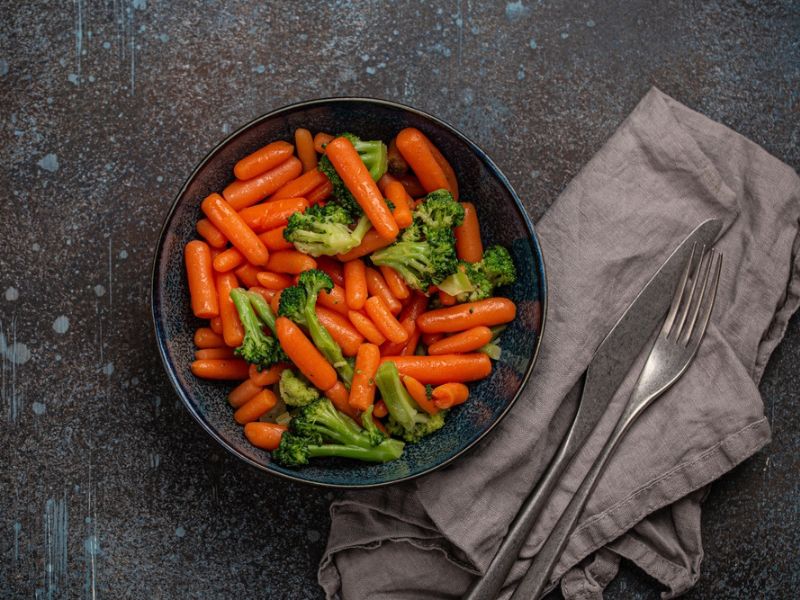Baby carrots have become increasingly popular as a healthy snack, especially among those looking for a quick and convenient way to get their daily dose of vegetables. However, some dark truths about baby carrots may surprise you. Here are eight of them:
Baby Carrots Are Not Really “Babies”
They are full-grown carrots cut and shaped to look like small, uniform pieces. Unlike what their name suggests, baby carrots are not young carrots.

Image Credit: Shutterstock/Brent Hofacker
Baby Carrots Are Not Always Organic
While some brands of baby carrots are labeled as organic, many are not. They are often grown with pesticides and other chemicals, which can harm the environment and human health.
Baby Carrots Are Not As Nutritious As Regular Carrots
While baby carrots may be convenient and tasty, they are less healthy than regular carrots. The processing and cutting of the carrots can strip away some of their nutrients, and they often lack the fiber that comes with eating a whole carrot. Baby carrots can be a choking hazard for young children. Because they are small and smooth, baby carrots can easily get lodged in a child’s throat, which can be dangerous or even fatal.

Image Credit: Shutterstock/Elena Eryomenko
Baby Carrots Can Cause Skin Irritation
Baby carrots are often soaked in chlorine. While chlorine levels are considered safe, some people may be sensitive to the chemical. Some people may experience skin irritation or rash after handling baby carrots, especially if they have sensitive skin. Before packaging, many baby carrots are soaked in a chlorine solution to preserve their freshness and prevent bacterial growth.
Baby Carrots May Contribute To Food Waste
Because they are cut and shaped, baby carrots have a shorter shelf life than regular carrots and are more likely to go to waste if not consumed quickly. Baby carrots have a negative environmental impact. It can contribute to environmental problems such as water scarcity, pollution, and greenhouse gas emissions. Producing baby carrots requires significant resources, including water, energy, and packaging materials.
It is essential to bear in mind some dark truths about baby carrots, despite their convenient and healthy appearance. It is necessary to be aware of these issues and make informed choices regarding food consumption.